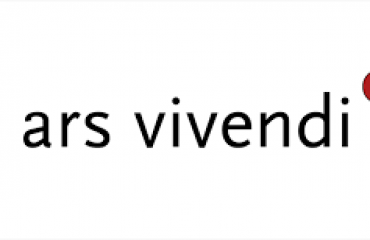This post is also available in:
![]() English (الإنجليزية)
English (الإنجليزية)
| Name of Publishing House | Hackett |
|---|---|
| website | https://www.hackettpublishing.com/ |
| Communication | editorial@hackettpublishing.com |
About Hackett Publishing Company
Established in 1972, Hackett Publishing Company is a privately held, staunchly independent publisher, currently employing twenty-seven people in its Indianapolis and Cambridge offices. HPC’s personnel, its books, the quality of its relationships with its authors, and the character of its practices all manifest a stability and continuity rare in today’s publishing world.
It was when the ultimate conglomerate of its day, ITT, bought Bobbs-Merrill, curtailing re-investment in its publishing program in order to extract its juice, that Bill Hackett left the College Division he’d founded at Bobbs—and its centerpiece, the Library of Liberal Arts—to begin anew as an independent publisher with his wife Frances. Their intention was to create a firm that would remain small and provide a service to the humanities. Their publishing efforts began with G.M.A. Grube’s outstanding translation of Plato’s Republic, soon followed by his translations of Plato’s Apology, Crito, Euthyphro, Meno and Phaedo, and by putting back into print Arthur Hyman and James Walsh’s Philosophy in the Middle Ages.
HPC’s first books exemplified in several ways the character of the publishing program to which Bill and Frances aspired. All were in philosophy, a discipline badly underserved by publishers at the time. Grube’s preeminent translations of these dialogues of Plato—the first truly satisfactory translations in the 20th century—served both students and scholars, as did the rescue of the finest textbook in medieval philosophy from the oblivion to which it had been consigned by a large commercial publishing firm. Importantly, HPC’s editorial development practices were modeled on a partnership between author and publisher rather than a relationship between supplier and manufacturer, and the prices of its books were stunningly modest.
HPC’s innovative pricing model required books with longevity—and to satisfy that requirement the company invested more heavily in line-by-line readings and other developmental support by experts than its competitors. Warranted confidence in both the reception and the endurance of its books permitted HPC to accept much longer pay-back periods for its investments in them than is standard in book publishing, and to earn a conscionable, albeit delayed, profit that would be re-invested in further publishing projects. It took eight years, but the stringent application of high editorial standards enabled HPC to get into the black on schedule.
After Bill Hackett’s death in 1986, Frances’ determination to preserve the standards and practices—and, more importantly, the continued independence—of the company ultimately led her into a partnership with Jay Hullett, who had joined the firm in 1976, having previously taught philosophy for ten years, and who had returned to that career in 1983.
HPC’s list has expanded steadily over the years to include state-of-the-art translations, editions, and original works by eminent scholars—with publishing programs in philosophy, political theory, classics, history, literature, Latin American studies, and Asian thought. Its uniform and utilitarian book covers have given way to less standard, occasionally provocative, ones.
The company’s outlook has always been quite long-range, and the continuity of its staff has enabled it to successfully execute projects with long gestation. Its program to retranslate Plato’s corpus, e.g.,—guided by John Cooper of Princeton University with the support of the same HPC staff who had initiated and developed it with him—came to fruition only in HPC’s 25th year, with the publication of its Complete Works of Plato.
In 2010, HPC’s shareholders created an Employee Stock Ownership Plan, putting the company on track to employee ownership, and thus committing it to a future of independence under the leadership of those who have been the stewards of its standards, practices and character.
2014 acquisition of Focus Publishing/R. Pullins Company titles:
We are pleased to announce that Hackett Publishing Company is now the publisher and distributor of Focus Publishing/R. Pullins Company titles. For more than twenty-five years, Focus Publishing—a small independent press—demonstrated a strong commitment to the arts and humanities, with highly respected lists in classics, modern languages, philosophy, and theater. In order to preserve the independent character of the Focus lists, ‘Focus’ is now an imprint of Hackett Publishing Company. Current Focus titles, forthcoming titles, and new works acquired for its lists will be published by Hackett Publishing under the Focus imprint. All Focus titles are now available to purchase on the Hackett Publishing Company website. To search for Focus titles by subject area please use the subject category links on the left or use the search bar the top of the page to search by author, title, or ISBN. Click here browse the entire Focus list.
This post is also available in:
![]() English (الإنجليزية)
English (الإنجليزية)

 العربية
العربية  English
English 



